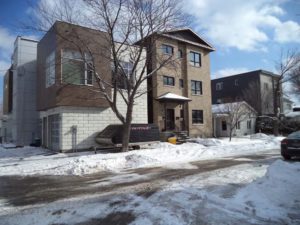Doug Ford, Harper gerrymandering, activist judgements, media blind spots, and freedom of expression
Ontario Civil Liberties Association statement on the notwithstanding clause controversy
(Ottawa, September 12, 2018) — The Ontario Civil Liberties Association (OCLA) has expertise in the law of freedom of expression, and in the civil rights of citizens. We are compelled to express our observations of the current notwithstanding clause controversy in Ontario.
The timeline of the controversy is as follows:
- Toronto municipal election period started May 1, 2018
- Election day is October 22, 2018
- Ontario government announced its intention to reduce the number of ridings at the end of July
- Bill-5 received Royal Assent on August 14, 2018
- Ridings were reduced in number from 47 to 25, to match the federal election ridings for Toronto
- Candidates were instructed to transfer their registrations to the new ridings
- Following a constitutional challenge done on short notice, the impugned provisions of Bill-5 were judicially declared of no force or effect on September 10, 2018
- The judge applied his ruling immediately and forced the riding structure back to the original 47 ridings, effective September 10, 2018
- Premier Ford announced he would invoke the notwithstanding clause to override the judge’s ruling September 10, 2018
Judge Belobaba’s ruling is available on CanLII. It is extraordinary for a court to strike down a statute passed by the legislature, more so on short notice and with immediate implementation without careful analysis of the consequences for a live electoral process.
Therefore, it has surprised us that the media has focused almost entirely on the potential use of the notwithstanding clause rather than critically examine the judge’s reasons for striking down the statute in such a dramatic way.
The judge’s reasons for invalidating Bill-5 are:
[20] As I explain in more detail below, the Impugned Provisions breach [freedom of expression rights] s. 2(b) of the Charter in two ways: (i) because the Bill was enacted in the middle of an ongoing election campaign, it breached the municipal candidate’s freedom of expression and (ii) because Bill 5 almost doubled the population size of City wards from an average of 61,000 to an average of 111,000, it breached the municipal voter’s right to cast a vote that can result in effective representation.
In our examination of the ruling, we fail to see how the candidate’s freedom of expression rights were violated by the restructuring of the ridings, which at the time of the ruling had already been put in place.
The judge was required to identify evidence that expression was actually prevented or impeded but he did not. The judge did not describe one iota of evidence that any candidate’s expression about anything was impeded by Bill-5. Nor did the judge provide a theoretical example of how any specific expression would be prevented or impeded by Bill-5.
Communication materials (flyers) made inaccurate by a changing law is not a violation of free expression rights. It does not prevent expression. It is a cost of acting in a democratic society with changing laws.
In the judge’s second reason, he takes voting to be expression, which is obvious. However, the judge has the problem that voters are not prevented from voting, or from any expression whatsoever, by Bill-5. The judge reasons that voting means “casting a vote that can result in effective representation”, and posits that a riding with a population 110,000 rather than 61,000 (on average) cannot provide the voter with “effective representation”.
Do we need to explain that the judge is on thin ice here? This leads us to judges striking down laws that do not provide “effective representation”, on the basis of committee or expert reports claiming a deficiency in “effective representation”.
Again the judge was required to identify case-specific evidence that a voter’s free expression rights were violated or impeded by Bill-5. The onus is on the party wishing to strike down a statute to prove that a Charter right was violated. Not one iota of evidence in this regard is presented in the ruling, and the link to the freedom of expression right is too distant to have any useful meaning.
The ruling is an activist ruling that disregards binding law regarding constitutional challenges of statutes. The judge mixes s. 1 analysis (impact on democracy) with the threshold question of whether a Charter right is violated by the effect of the impugned law.
These are the first questions that should have been addressed by our media watchdogs. Does the ruling make any sense?
Faced with a highly disruptive ruling that makes no sense, we fail to see why the Premier would not invoke the notwithstanding clause. One could argue that it is the Premier’s duty to do so in such circumstances.
Another aspect of this controversy which would merit more attention is the lack of explicit media criticism of gerrymandering. If there is an authentic concern for democracy, then strong ethical rules or oversight should impede this disgraceful practice perfected by all the parties that have held power.
After all, Ford, via Bill-5, has imposed the 2013 Harper gerrymandering onto the City of Toronto. The Harper ridings structure persists, Ford is allowed to do what he did, the change may well improve “democracy” and have all the claimed benefits, but we have no guarantee because there are no independent studies, real watchdogs, or strong ethics rules. On these points, the independent organization Democracy Watch has been an objective Canadian advocate for decades, to no avail.



